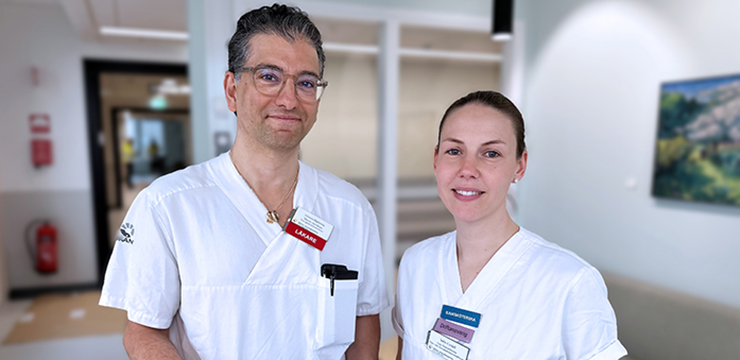Pioneering treatment gives hope to kidney patients awaiting transplants

At the end of last year, Skåne University Hospital conducted the first treatment followed by a transplant in Sweden, outside the confines of a study.
"This is one of the most exciting things I have experienced in my career. However, it is important to understand that this isn't a miracle cure, but rather a tool to boost the chances of a transplant for patients who otherwise wouldn't have suitable donor organs," says Alireza Biglarnia.
Excessive antibodies
Patients waiting for kidney transplants have different amounts of HLA antibodies in their blood that can attack a new organ. Higher antibody levels make it harder to find a matching organ because they damage it. This is called "high immunization," and for more than half of these patients, a transplant isn't possible because their antibody levels are too high.
"These are relatively young patients, with an average age of 40 years. Their only alternative has been lifelong dialysis," says Alireza Biglarnia.
Enzyme for tonsillitis
And it is this group of highly immunised patients who are eligible for the treatment. It is based on research by Lars Björck, a professor at Lund University and an infectious diseases consultant at Skåne University Hospital. In the 2000s, he discovered that a specific enzyme released during tonsillitis quickly and effectively eliminates antibodies.
"Since we can't predict when an organ will be available, timing is critical for transplants. When the time comes, it's crucial to quickly lower antibody levels to proceed with the transplant”, says Alireza Biglarnia.
A few days after the transplant, the antibodies might come back. The patient will need to go through several tough treatments to reduce these antibodies and prevent the organ from being rejected. This requires significant effort and teamwork among transplant surgeons, immunologists, and nephrologists.
Studies at other hospitals
The method and treatment have previously been tested within the framework of clinical studies at other hospitals in the country and internationally. However, the patient treated in October 2023 was the first to be treated directly within the healthcare system outside the confines of the study.
The patient is doing well and now has a functioning kidney. Alireza Biglarnia and his colleagues are now preparing to treat another patient.
"Each treatment requires significant efforts from many, but it is a wonderful feeling to be able to give these patients a chance at a changed life."

